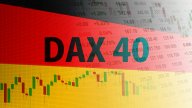Featured articles

Euro forecast: Third-party price target
Read our EUR/USD forex rate forecast for 2025 and beyond, with insights from third-party analysts and market experts
12:06, 4 July 2025

Tesla stock forecast: third-party Tesla (TSLA) price target
Discover the Tesla (TSLA) stock price forecast, with predictions, price drivers, and Tesla CFDs trading strategies on Capital.com
12:42, 10 July 2025

Crypto CFDs: Popular cryptocurrencies for trading
Discover which cryptocurrencies are trending for CFD trading in 2025 – from bitcoin to newly listed coins like SUI and PEPE.
10:46, 31 July 2025

Trading Tesla after its earnings miss
Q2 earnings and revenue miss sees shares drop in extended trading as CEO Musk warns of the possibility of a “few rough quarters”
06:21, 24 July 2025

Why Michael Burry just sold all his stocks
Michael Burry just sold over $70 million in stock, liquidating his entire portfolio except for one stock, doubling down on a company that other investors are fleeing in droves.
15:28, 18 July 2025

Nasdaq 100: Trading US CPI
Futures up on Nvidia’s China sales resumption of AI chips, but the next test is US pricing data.
06:29, 15 July 2025

Tesla stock forecast: third-party Tesla (TSLA) price target
Discover the Tesla (TSLA) stock price forecast, with predictions, price drivers, and Tesla CFDs trading strategies on Capital.com
12:42, 10 July 2025

Trading the Nasdaq 100 Amidst Big Tech Earnings
Microsoft and Meta notably impressed powering the tech-heavy index higher in the futures market, but it’s two down and two more to go as both Apple and Amazon are next.
07:04, 31 July 2025

Trading the DAX 40 following the US-EU trade deal
Weekend gap gets filled as initial euphoric move faces a bit of turbulence, in all keeping its technical overview unchanged in both daily and weekly time frames.
09:32, 28 July 2025

Trading the Dow: Earnings steal the show
The value of the key US equity index lagged last week against those with heavier tech weightings, but its technical overview remains bullish and still a story of net long bias for CoT speculators.
09:00, 21 July 2025

Nasdaq 100: Trading US CPI
Futures up on Nvidia’s China sales resumption of AI chips, but the next test is US pricing data.
06:29, 15 July 2025

Why platinum just broke a decade long resistance
A line can be drawn on platinum's price chart starting in 2008, capturing one, two, three, four reactions over 17 consecutive years.
20:04, 22 July 2025

Trading Gold’s short-term bull channel
Denial of Fed Chair Powell’s removal has meant a pullback off the highs, but what will it take to get gold prices to break out of its short-term bull channel?
07:23, 17 July 2025

Cocoa price prediction: Third-party target
Read our cocoa price forecast for 2025 and beyond, with insights from third-party analysts and commodities market experts.
15:58, 14 July 2025

Oil price forecast 2025-2030: Third-party price target
Discover third-party oil price predictions for 2025 and beyond, with analyst targets, historical prices, and trading strategies.
16:03, 25 June 2025

Forex CFDs: Understanding currency forwards vs spot markets
Spot or forward? These two forex markets behave differently, and now you can trade both with us as forex CFDs. Here’s how they work, and what sets them apart.
14:48, 31 July 2025

An unprecedented signal just triggered on the US Dollar
The US dollar just collapsed against the Taiwanese new dollar, with the pairing falling 8% in just a few days, crashing below this key support line and reaching its lowest level in over a year.
14:17, 17 July 2025

Euro forecast: Third-party price target
Read our EUR/USD forex rate forecast for 2025 and beyond, with insights from third-party analysts and market experts
12:06, 4 July 2025

USD/JPY forecast: Third-party price target
The US dollar to Japanese yen (USD/JPY) rate is down approximately 9.41% year-to-date after the yen closed at 142.8790 per dollar on 25 April 2025 – marking one of JPY’s strongest levels versus USD since September 2024, and around 11.77% below its July 2024 high of 161.942.
14:37, 8 May 2025

Crypto CFDs: Popular cryptocurrencies for trading
Discover which cryptocurrencies are trending for CFD trading in 2025 – from bitcoin to newly listed coins like SUI and PEPE.
10:46, 31 July 2025

Ripple price prediction: Third-party price target
Ripple, launched in 2012 with the XRP Ledger, aims to make cross-border payments faster and cheaper using its native token, XRP. Backed by financial institutions and a strong market presence, it remains a major crypto asset by market cap.
14:34, 30 July 2025

Ethereum price prediction: Third-party price target
Your Ethereum price prediction resource for 2025 onward, with analyst outlooks, price targets and CFD trading strategies.
14:00, 30 July 2025

Dogecoin price prediction 2025-2030: Third-party price target
Could dogecoin reach $1? Explore third-party DOGE price predictions and insights for 2025 and beyond.
14:50, 29 July 2025
